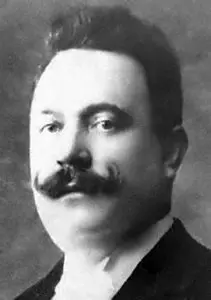Julius Fučík
Julius Ernest Wilhelm Fučík was a Czech composer and conductor of military bands. He became a prolific composer, with over 400 marches, polkas and waltzes to his name. As most of his works were for military bands, he is sometimes known as the “Bohemian Sousa”.
Fucik was born in 1872 in Prague, Bohemia. When he was young, he learned how to play the bassoon, violin, and percussion, and also studied composition with Antonín Dvořák. In 1891, he joined the Austro-Hungarian Regiment as a military musician, and then went on to join several different groups as a musician and a conductor. In 1897, he rejoined the army as the bandmaster.
Soon after, he wrote his most famous piece, Einzug der Gladiatoren or Entrance of the Gladiators. Fucik originally called the piece Grande Marche Chromatique. But he renamed it due to his interest in Roman history. The march demonstrates the state of the art in playing technology and the construction of brass instruments, which allowed the players to play fast and even chromatic scales.
Fucik eventually moved to Berlin where he started his own band. But after the first World War began, he was low on money and his health suffered. He died in 1916.
Today his marches are still played as patriotic music in the Czech Republic. His worldwide reputation rests primarily on two works: “Florentiner Marsch”, popular throughout much of Europe and the United States, and the “Entrance of the Gladiators” (Vjezd gladiátorů), which is widely recognised, often under the title “Thunder and Blazes”, as popular entrance music for circus clowns.
Julius Fučík works available at SAXpress
Showing all 3 resultsSorted by latest




